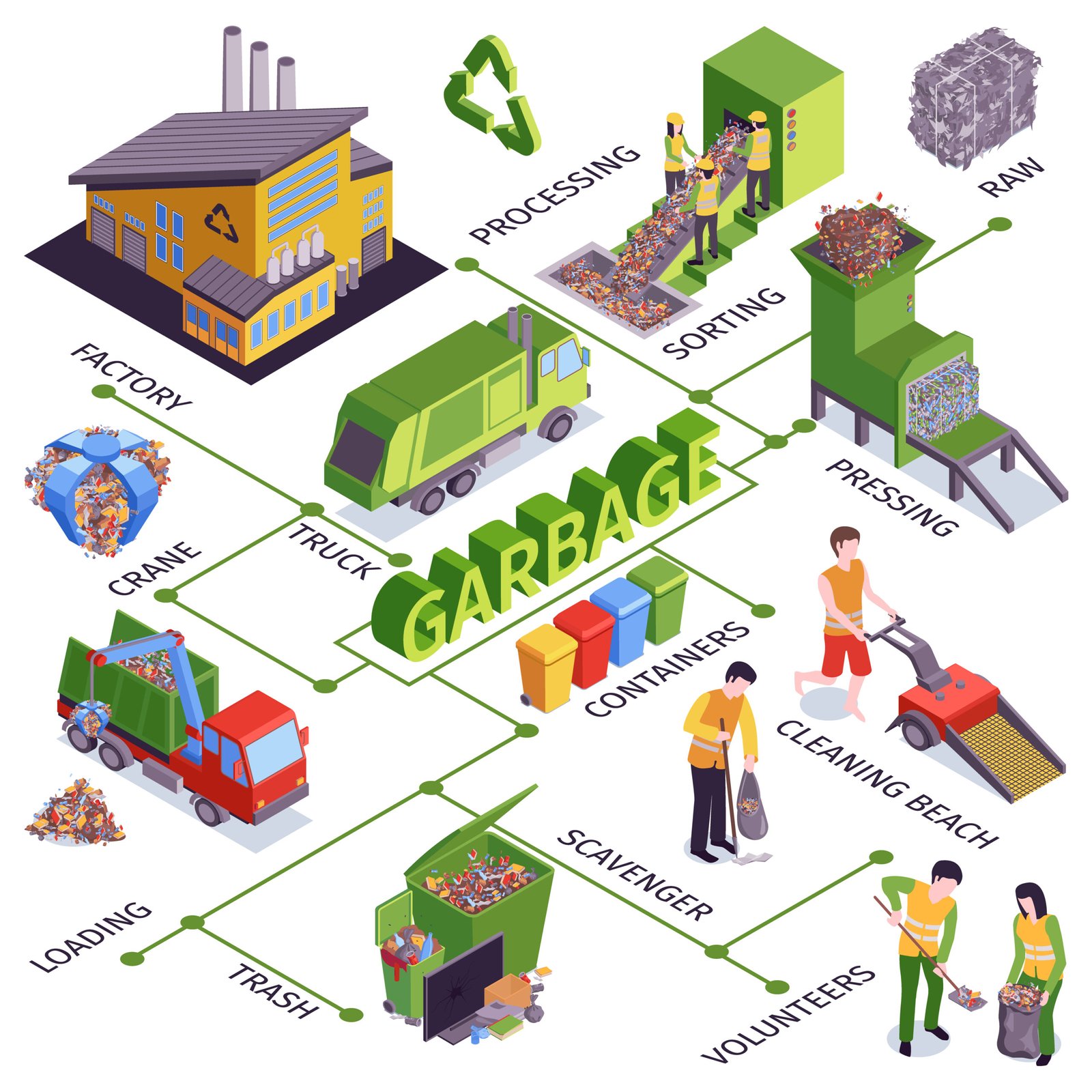Key Takeaways
- Learn why sustainable waste management is critical for modern cities.
- Discover various waste management techniques used in urban environments.
- Understand the benefits of community involvement in waste reduction efforts.
- Explore innovative waste technologies shaping the future.
- Identify common challenges and solutions in urban waste management.
- Get tips on how individuals can contribute to sustainable waste practices.
Sustainable Waste Management: What Cities Need to Know
As urban areas continue to expand, they encounter significant challenges in waste management, necessitating innovative solutions to keep up with growing populations. Effective Chicago trash pickup exemplifies how municipal operations can be vital to comprehensive urban waste management strategies. These solutions integrate creative and sustainable techniques to handle the growing garbage produced by increasing populations and consumer needs. For example, putting in place recycling plans, composting projects, and effective collection times reduces trash going to landfills and encourages resource preservation. The UN’s Sustainable Development Goals strongly emphasize sustainable production and consumption patterns, highlighting the need for waste reduction worldwide. By adopting such initiatives, cities can enhance environmental sustainability while improving economic efficiency, ensuring that urban growth can be managed responsibly.
The Urgent Need for Sustainable Waste
Management in urban centers worldwide is increasingly facing the escalating challenge of waste management due to rapid population growth. As more people inhabit these areas, the volume of waste generated continues to rise, placing significant strain on existing waste management systems. Implementing sustainable waste management practices is critical for mitigating these challenges and preserving the environment. Sustainable practices include recycling, composting, and waste-to-energy conversion, which help to reduce pollution, conserve energy, and minimize the demand for landfill space. Additionally, these techniques support a circular economy by guaranteeing the responsible and effective use of resources. By prioritizing sustainable waste management, urban areas can foster healthier ecosystems, improve community well-being, and create resilient infrastructures capable of handling future population demands.
Popular Waste Management Techniques
Cities increasingly adopt various strategies to manage waste effectively, aiming to minimize landfill impact and maximize resource recovery. One common technique is recycling, which involves collecting and processing materials like plastics, paper, and metals to be repurposed into new products. Composting is another critical strategy that turns organic waste into nutrient-rich fertilizers, such as food scraps and yard waste. These fertilizers can then enrich parks and gardens, promoting sustainable landscaping practices. Additionally, waste-to-energy conversion captures energy from waste materials, providing an alternative energy source while reducing the volume of waste in landfills. These techniques reduce the total amount of trash produced and support a circular economy in which resources are continuously recycled and used to benefit many industries and the environment.
Community Involvement: A Key Element
Effective waste management is not just about maintaining a healthy environment; it’s about community involvement. Active participation from the community is essential. Educational programs that raise awareness about waste reduction and recycling can significantly influence community attitudes and behaviors. For example, workshops and seminars can teach residents the importance of sorting waste, composting, and reducing single-use plastics. Additionally, initiatives that promote community engagement, such as neighborhood clean-ups and recycling drives, can enhance participation and cooperation among residents. These activities improve local waste management practices and strengthen social ties within the community, fostering a sense of shared responsibility for the environment. By working together, community members enhance the effectiveness of waste management while building a more sustainable and interconnected neighborhood.
Innovative Technologies in Waste Management
The introduction of innovative technologies is radically transforming how cities manage waste. Smart bins with sensors can autonomously monitor waste levels and sort materials, improving operational efficiency. This technological shift is complemented by AI-powered recycling systems that enhance accuracy in material sorting, significantly reducing contamination levels. Such advances allow urban areas to implement more efficient and precise waste management systems, ultimately lowering operational costs and increasing recycling rates.
Overcoming Common Urban Challenges
Urban waste management faces several challenges, including managing high waste volumes and curbing illegal dumping. Cities are increasingly implementing policy interventions aimed at promoting responsible waste disposal. Stringent regulations and effective urban planning strategies can significantly mitigate these issues. By fostering environments that support the right infrastructure and resources, municipalities can encourage better waste management practices from businesses and residents.
The Benefits of Sustainable Practices
Embracing sustainable waste management practices presents numerous advantages, fundamentally altering how urban environments function. Along with reducing greenhouse gas emissions and encouraging the conservation of natural resources, these initiatives also benefit global efforts to combat climate change. According to a National Geographic analysis, garbage has a widespread negative influence on the ecosystem worldwide, highlighting the urgent need for practical solutions. In the fight against climate change, sustainable activities are essential since they positively affect the environment and the economy. By highlighting these advantages, we can encourage more people and communities to embrace sustainable waste management techniques.
Urban Waste Management Strategies Across the Globe
Globally, cities are adopting exemplary waste management strategies that others can emulate. Cities like San Francisco and Tokyo are pioneering waste minimization, resource recovery, and recycling plans. San Francisco’s ambitious zero-waste goal promotes extensive recycling and composting, drastically reducing landfill dependency. Meanwhile, Tokyo’s enforced waste sorting regulations have created a highly efficient system that recycles most of its waste. These precedents provide valuable insights into developing successful strategies elsewhere.
How You Can Make a Difference
Cities can transform into sustainable urban spaces through the collaborative endeavors of policymakers, businesses, and individuals. This transformation is achievable by integrating advanced technologies, promoting community involvement, and adopting innovative waste management strategies. Everyone plays a vital part in creating a sustainable future and clearing the path for future generations to live in a better environment.





